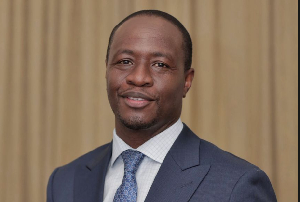Alhaji Limuna Mohammed-Muniru, the Upper East Regional Minister, has reiterated the need for transparency and accountability from leaders to enhance active participation and interest of people in affairs of their organizations.
He said shirking the responsibility of providing feedback and stewardship to people being represented spelt doom for duty bearers, beneficiaries of development interventions, and the citizenry of the country as a whole.
"Accountability is one key element of good governance that is often taken for granted," he said when he addressed participants at the opening of a three-day training on social accountability tools and applications for civil society organizations organized by IBIS Ghana in Bolgatanga.
The Minister affirmed the many development efforts made by partners to reduce poverty levels of the people and in the Upper East Region, which he said was considered one of the poorest; adding that it could have been better, if interventions fully reached out to beneficiaries.
He cited many challenges such as quality teaching and learning; teacher absenteeism and attributed them to poor supervisory and monitoring roles of stakeholders.
Alhaji Mohammed-Muniru advocated the involvement of civil society organizations and the general public to ensure improved teaching and learning.
He said the laudable interventions of development partners could serve the purposes for which they were developed for beneficiaries if citizens’ interest in monitoring this support was ensured by all stakeholders.
Alhaji Mohammed-Muniru cautioned that seeking accountability from duty bearers should not be equated to subduing the managerial and leadership roles from them.
He gave the assurance that government remains resolute to providing more opportunities to improve lives of all Ghanaians, and would not relent in this effort despite the turbulent challenges facing the economy.
Mr. Emmanuel Abeliwine, Programme Director of IBIS, said the training was informed by outcomes of the Public Participation in Local Governance Phase I and II implemented by IBIS in the past to build capacity of citizens, CSOs and local government structures to enhance citizens’ voices and effective response from local level duty bearers in matters of basic service delivery.
Politics of Thursday, 27 February 2014
Source: GNA












